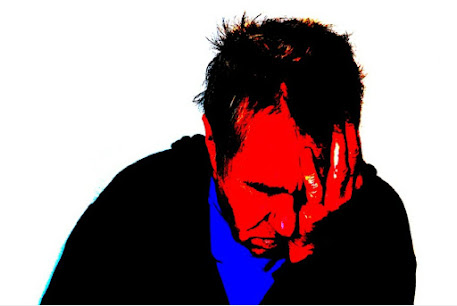sleep benefits of magic mushrooms
Magic mushrooms, also known as psilocybin mushrooms, contain the psychoactive compound psilocybin, which can have a wide range of effects on the mind and body, including potential benefits related to sleep. However, it's important to note that the use of magic mushrooms for their sleep-related effects is not well-studied, and their use is generally associated with various legal and safety considerations

Here are some potential effects of magic mushrooms on sleep:
Improved Sleep Quality: Some individuals who have used magic
mushrooms have reported improvements in sleep quality. Psilocybin can alter
one's perception of time, making it feel like they've had a more restful
night's sleep.
Vivid Dreams: Magic mushrooms can lead to vivid and often
emotionally charged dreams. Some people may find these dreams intriguing, while
others may find them disturbing. The content of these dreams can vary widely.
Sleep Disruption: On the other hand, magic mushrooms can
disrupt sleep patterns for some individuals. The psychoactive effects of
psilocybin can make it difficult to fall asleep, and they may cause
disturbances during the night.
Sleep Duration: The duration of the effects of psilocybin
varies from person to person, and it can last for several hours. This could
potentially lead to sleep deprivation if taken too late in the evening.
It's crucial to approach the use of magic mushrooms with
caution and consider the legal and safety aspects. The legality of magic
mushrooms varies from place to place, and in many locations, their possession
and use are illegal.
Moreover, the effects of magic mushrooms can be
unpredictable, and they are not suitable for everyone. Some individuals may
experience anxiety, panic, or other adverse effects, which can be particularly
problematic if they occur during the night when sleep is desired.
If you are interested in using magic mushrooms for any
purpose, including sleep, it's essential to do thorough research, consider the
legal and health risks, and consult with a medical professional if you have any
underlying medical conditions or concerns about their use. There are more
established and safer methods for addressing sleep-related issues, such as
adopting healthy sleep hygiene practices, managing stress, and, if necessary,
seeking medical advice for sleep disorders.
Improved Sleep Quality:
Some individuals have reported improved sleep quality after
using magic mushrooms, although this effect is not universally experienced.
Here's how magic mushrooms might contribute to improved sleep quality for some
people:
Reduced Anxiety and Stress: Psilocybin, the active compound
in magic mushrooms, has been associated with reductions in anxiety and stress
in some users. By reducing these negative emotions, individuals may find it
easier to relax and fall asleep, which can contribute to better sleep quality.
Enhanced Emotional Processing: Magic mushrooms can lead to
introspective experiences and emotional processing. Some users have reported
that these experiences help them confront and work through unresolved issues or
emotional burdens, potentially leading to a more peaceful state of mind that
promotes better sleep.
Altered Perception of Time: Psilocybin can distort one's
perception of time, making it feel as though they've had a more extended or
deeper night's sleep, even if the actual sleep duration hasn't changed. This
subjective sense of a restful night's sleep can contribute to improved sleep
quality.
It's essential to note that these effects are highly
subjective, and not everyone who uses magic mushrooms will experience improved
sleep quality. Additionally, the use of magic mushrooms for sleep should be
approached with caution, considering the legal and safety aspects mentioned
earlier.
Magic mushrooms are not a recommended or medically approved
treatment for sleep disorders or sleep-related issues. If you are experiencing
chronic sleep problems, it is advisable to consult with a healthcare
professional who can provide evidence-based recommendations and treatments to
address your specific sleep concerns.Sleep Disruption:
Magic mushrooms, also known as psilocybin mushrooms, can
disrupt sleep for some individuals. Here's how their use may lead to sleep
disruption:
Delayed Sleep Onset: Psilocybin, the psychoactive compound
in magic mushrooms, can alter perception and cognition. This altered state of
consciousness may make it difficult for individuals to fall asleep, as their
minds may be highly active and preoccupied with the hallucinogenic effects.
Unpredictable Duration: The effects of psilocybin can last
several hours, and it's challenging to predict precisely how long they will
persist in any given individual. This unpredictability can lead to difficulty
in timing when to go to bed and when to expect the effects to wear off.
Vivid Dreams and Nightmares: Magic mushrooms can lead to
vivid and sometimes emotionally charged dreams or even nightmares. These
intense dream experiences can disrupt sleep by causing awakenings and making it
challenging to achieve restful sleep.
Restlessness: Some individuals may experience restlessness,
fidgeting, or an inability to settle down during the effects of psilocybin,
making it difficult to remain in bed and achieve uninterrupted sleep.
Sleep Fragmentation: Magic mushrooms can lead to fragmented
sleep, with periods of wakefulness interspersed with attempts to sleep. This
can result in reduced sleep efficiency and overall poor sleep quality.
It's important to emphasize that the effects of magic
mushrooms can be highly variable, depending on the individual, the dose
consumed, and the specific circumstances of use. Because of these unpredictable
and potentially disruptive effects, it is not recommended to use magic
mushrooms as a sleep aid.
Furthermore, the legality and safety concerns associated
with magic mushroom use should be considered. In many places, the possession
and use of magic mushrooms are illegal, and there are health risks associated
with their use, including the potential for adverse psychological experiences.
If you are experiencing sleep-related issues, it is advisable to seek guidance
from a healthcare professional who can provide evidence-based and safe
approaches to address your sleep concerns.


